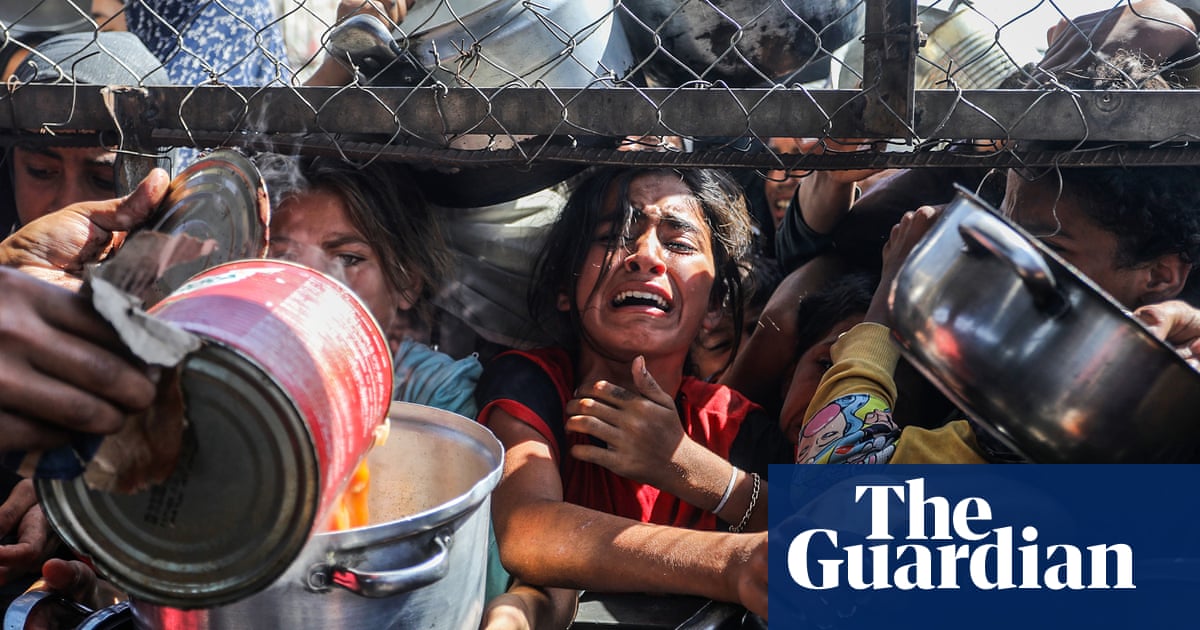Israel is setting a dangerous precedent for international human rights law violations in Gaza that is making the whole world more dangerous, Norway’s international development minister has warned.
Norway has played a historical role in the region, including by facilitating the Oslo peace accords between Israel and the Palestinians that led to a celebrated breakthrough deal in 1993. Last year itrecognised the Palestinian state, one of a minority of European countries to do so.
“For the last one and a half years we have seen very low respect for international law in the war inGazaand in recent months it is worse than ever before,” Åsmund Aukrust said. “So for the Norwegian government it is very important to protest against this, to condemn this very clear violation.”
In addition to contributing to the worsening humanitarian catastrophe in Gaza, he said Israel’s actions posed a global threat to other and future conflicts.
“We are very concerned that there will be a new international standard where food is used as a weapon, where the UN is denied entrance to the war and conflict zone, and other NGOs are denied entrance,” he said. “And Israel is building up something they call Gaza Humanitarian Foundation (GHF), which is to militarise humanitarian aid.”
GHF, the controversial Israeli and US-backed logistical group, started distributing food in Gaza this week. Amidchaotic scenes, Israeli forces said they fired “warning shots” at a distribution centre. Gaza health officials said at least one civilian had been killed and 48 injured.
A UN-backed assessment earlier this month found that the entire population of the Gaza Strip, approximately 2.1 million people, were at critical risk of famine, with half a million people categorised as in catastrophe.
Aukrust said: “We are afraid and very concerned that this might be a new standard in international law and this will make the world a lot more dangerous to all of us.”
However, he said it was not up to politicians to decide whether the term genocide applied to Gaza, saying that was a decision for the international court of justice. “Genocide is the worst crime a country can do and the worst crime that politicians can do and this should not be polarised,” he said.
However, he said Oslo would be keeping an “open line” to all parties – including Hamas – for dialogue and promised that Norway would be “there for the long run” to rebuild Gaza.
“We have no limitation of who we are talking to. I would say the opposite. We would be happy to, and we want to, talk with those who are responsible, whether it is Israel, Hamas or others,” he said. “Dialogue is the most important word when it comes to peacemaking and we want to have an open line with all countries, all groups that might have an influence here.”
The Norwegian oil fund, the world’s largest sovereign wealth fund that operates under rules set by parliament, has so far blacklisted 11 companies for assisting Israel’s occupation.
Next week, the Norwegian parliament is expected to reject calls to stop the fund from investing in companies that sell products and services in the occupiedPalestinian territories.
Aukrust said decisions about the wealth fund were made by the bank, not politicians.
“The bank decides where they want to invest. What the politicians do is to decide the rules,” he said. The rules, he added, were “very clear” that the fund should not invest in anything that contributed to a violation of international law.
Norway’s decision to recognise the state of Palestine in May 2024 was “to send out a message of hope,” said Aukrust.
He urged people acrossEuropeto “continue to protest” and to keep their faith in politics. “As long as the war is going on, from the Norwegian government side we will all the time look into what more can we do. What new initiative can we take. How can we send an even clearer message to those who are responsible for this.”
